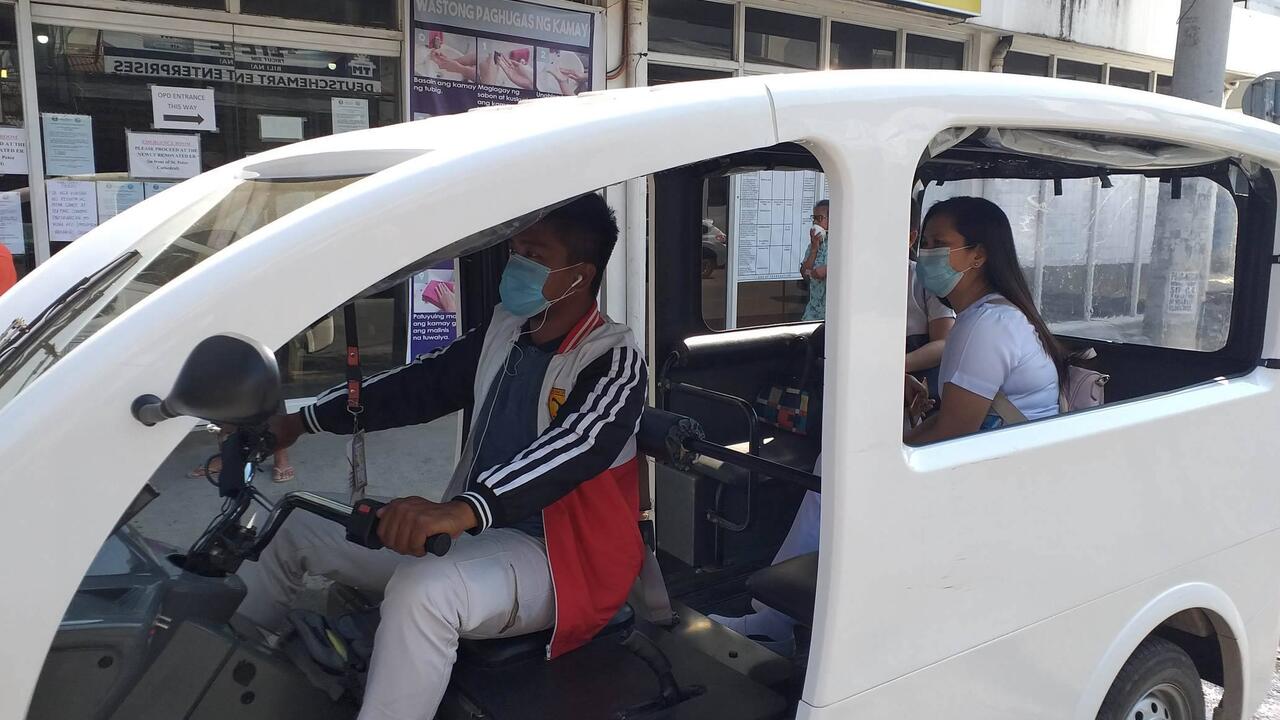
Driving innovation during COVID-19 pandemic
An alumnus helped design an e-trike in the Philippines now used to carry medical professionals and equipment

An alumnus helped design an e-trike in the Philippines now used to carry medical professionals and equipment
By Carol Truemner Faculty of EngineeringMarni McVicar had no idea the project she helped design during a volunteer mission in the Philippines last November would now be a critical mode of transportation used to safely carry COVID-19 patients and supplies.
The 1984 Waterloo electrical engineering graduate spent two weeks in the Southeast Asian country with the Canadian Executive Service Organization (CESO), a not-for-profit international economic development organization, working on an electric trike (e-trike).
The e-trike research project began at the country’s Cagayan State University, located in Tuguegarao City, to create a clean and more energy-efficient vehicle to move passengers and cargo.
The University researchers were tasked with advancing the capabilities of the three-wheeled electric vehicle to replace petrol-powered and other alternative forms of transportation that are often crowded and unsafe.
“In that part of the Philippines, they don’t really have taxis,” says McVicar. “What they have are motorcycles that have been outfitted with side cars.  Some can fit two to three people, but like any developing country, they put in as many people who can possibly fit. They are inefficient, not well regulated and dirty.”
Some can fit two to three people, but like any developing country, they put in as many people who can possibly fit. They are inefficient, not well regulated and dirty.”
Marni McVicar helped design an e-trike in the Philippines now used to transport front-line medical workers and their supplies.
While there are sample e-trikes in the Philippines, most have been produced in Japan and are too expensive for most transportation providers in the country to purchase.
“They want something made closer to home that is much more affordable,” McVicar says.
As a CESO advisor, McVicar helped modify the design of the e-trike, which like a child’s tricycle, has two wheels in the back and one at the front.
She recommended adjustments to make the vehicle run more smoothly and efficiently and proposed the back of the seat be designed to fold flat to carry passengers and cargo.
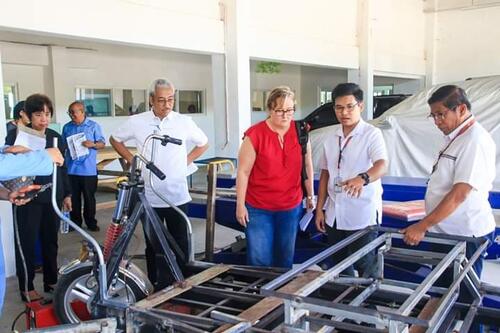
Alumnus Marni McVicar, third from right, oversees the design of an e-trike in the Philippines.
When COVID-19 became a national health emergency throughout the Philippines earlier this year, the mayor of Tuguegarao City requested e-trikes be introduced to provide transportation for medical professionals and supplies.
“The e-trikes used by the health workers were created on the basis of designs made by Marni,” explains Dr. Lina Garan, vice president of Cagayan State University, in a news release.
McVicar found out from CESO that her work is making a significant difference in the fight against the coronavirus.
“I’m glad that something I was part of is being used in a positive way,” she says.
There are plans for Cagayan State University to start producing e-trikes as a form of revenue to help offset some of it lost after a law was passed three years ago introducing free tuition for students attending state universities and colleges.
After working as a management consultant for a number of years, McVicar recently started as the hardware program manager at Clearpath Robotics, a Kitchener-based company founded by four Waterloo Engineering alumni. She says the new position at the company “combines all the things that really tickle my fancy.”
“I like cool things, I like things that actually have a value and will help people,” she says.
Although McVicar spent just two weeks volunteering with CESO, she highly recommends other alumni, especially those who are semi-retired or retired, consider joining the organization.
“CESO not only works on overseas projects, it is also involved in communities in Canada that need help,” she says. “It really is a fantastic organization that takes good care of its people.”
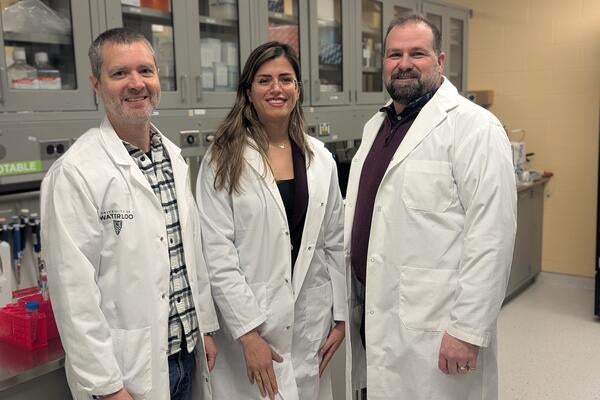
Read more
Researchers engineer bacteria capable of consuming tumours from the inside out
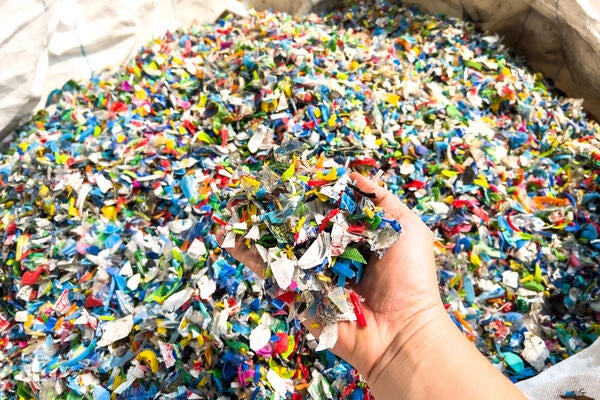
Hand holding small pieces of cut colourful plastic bottles, which Waterloo researchers are now able to convert into high-value products using sunlight. (RecycleMan/Getty Images)
Read more
Sunlight-powered process converts plastic waste into a valuable chemical without added emissions
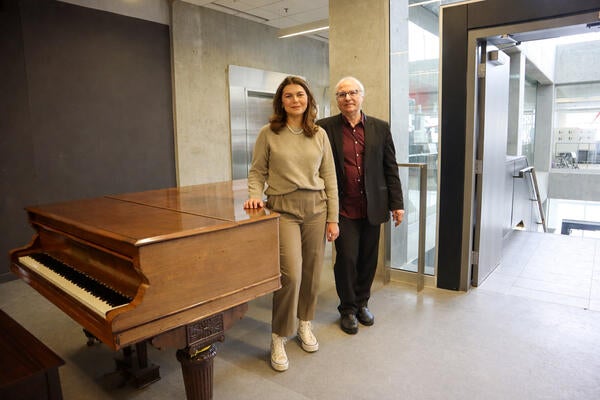
University of Waterloo researchers Olga Ibragimova (left) and Dr. Chrystopher Nehaniv found that symmetry is the key to composing great melodies. (Amanda Brown/University of Waterloo)
Read more
University of Waterloo researchers uncover the hidden mathematical equations in musical melodies
The University of Waterloo acknowledges that much of our work takes place on the traditional territory of the Neutral, Anishinaabeg, and Haudenosaunee peoples. Our main campus is situated on the Haldimand Tract, the land granted to the Six Nations that includes six miles on each side of the Grand River. Our active work toward reconciliation takes place across our campuses through research, learning, teaching, and community building, and is co-ordinated within the Office of Indigenous Relations.